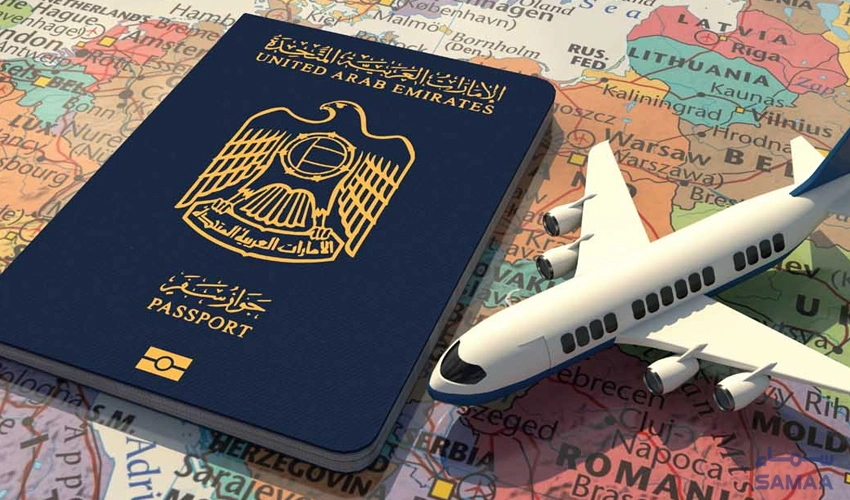The UAE has become one of the most popular destinations for expats and their families, offering career growth opportunities and a better life. Many expats living in Dubai choose to bring their families over to share in their success and start a new chapter together. However, to bring family members such as a spouse, children, and other dependents, expats must sponsor them for a residence visa. Here’s a simplified guide to understanding the process and requirements.
Eligibility for Sponsoring Family in Dubai
To sponsor family members in Dubai, expats must meet certain criteria. First and foremost, they must be employed in the UAE, and their employer must provide them with a valid work permit and residency visa. If you’re a resident in Dubai, your employment visa is your key to sponsoring your family.
If you’re planning to bring your family with you when you first move to Dubai, you can start by bringing them on visit visas. This allows them to stay while the process for their residency visa is completed. Although sponsoring family members is a straightforward process, it requires attention to legal procedures and the following steps.
Sponsorship Criteria and Requirements
- Minimum Salary: Expats must earn a minimum salary of Dh4,000 per month, or Dh3,000 with accommodation, to sponsor their family. If you wish to sponsor your parents, a higher salary of Dh10,000 is required.
- Medical Fitness: All applicants aged 18 and above must pass a medical fitness examination. This is a necessary step for obtaining the residence visa.
- Time Limit: After your family enters the UAE on an entry permit, you must apply for their residence visa within 60 days.
- Housing: You need to have appropriate housing for your family, whether it is a rented apartment or a villa. Proof of accommodation is often required during the process.
- Profession: The type of profession is no longer a condition to sponsor family members, so you can sponsor your family regardless of your job type.
Sponsoring Your Wife and Children
Expats can sponsor their wife and children under the same conditions mentioned above. The residency duration for your children and spouse will be the same as your residency permit, typically for two or three years.
For your wife, you will need to provide proof of marriage, such as an attested marriage certificate in Arabic or an officially translated version.
- Sponsoring Multiple Wives: In some cases, Muslim residents may sponsor two wives, provided they meet certain conditions outlined by the authorities.
- Sponsoring Daughters: You can sponsor your daughter as long as she is unmarried. There are no age restrictions for daughters.
- Sponsoring Sons: You can sponsor your son up until the age of 25. However, sons with special needs may be sponsored regardless of age.
- Sponsoring Newborns: For babies born in the UAE, you must apply for a residence visa within 120 days of their birth to avoid fines.
- Sponsoring Stepchildren: Expat residents can sponsor stepchildren under specific conditions, including providing a no-objection certificate from the biological parent. The residence visa for stepchildren is valid for one year, with the possibility of annual renewals.
Required Documents for Sponsoring Family Members
To sponsor your family, you’ll need to gather several documents. This ensures that the application process is smooth and efficient. The required documents include:
- A completed visa application form (online or through a typing center)
- Passport copies of the wife and children
- Recent passport-sized photos of the wife and children
- Medical clearance certificates for those over 18
- Copy of the employment contract or company contract
- Salary certificate from your employer
- Attested marriage certificate
- Attested birth certificates for children
- Registered tenancy contract
- Emirates ID application forms for each family member
Sponsoring Parents
To sponsor your parents, the expat must earn a minimum salary of Dh10,000 per month. Additionally, you must provide medical insurance for both parents, which must be renewed annually.
A deposit is required for each parent, as set by the immigration authorities. This visa allows parents to stay for up to one year, and they must be sponsored together—unless specific circumstances justify sponsoring just one.
Visa Application Process
You can apply for a family residence visa online through the General Directorate of Residency and Foreigners Affairs (GDRFA) in Dubai or through the Federal Authority for Identity, Citizenship, Customs, and Port Security (ICA) for other emirates. Alternatively, you can visit typing centers or Amer Centers for help with the process.
Visa Fees
Once you submit your application, you will be required to pay visa processing fees. The typical costs for a family visa in Dubai are:
- Residence permit fee: Dh200
- Knowledge fee: Dh10
- Innovation fee: Dh10
- Fee inside the country: Dh500
- Delivery fee: Dh20
Please note, the residence fee increases by Dh100 annually for visas lasting over two years.
Medical Test and Emirates ID
After the family visa is approved, all applicants over 18 must undergo a medical fitness test. This checks for contagious diseases such as HIV, tuberculosis, and Hepatitis. The test is done at designated Emirates Health Services centers.
Once the medical tests are completed, the next step is applying for an Emirates ID, which costs Dh370. You can apply for an Emirates ID online or visit authorized centers for biometric scanning.
Renewal of Family Residence Visa
Family residency visas in the UAE are usually tied to the sponsor’s visa and are valid for one to three years. Be sure to start the renewal process well before your visa expires to avoid fines. The renewal process is similar to the initial application and requires the same documents and steps.





